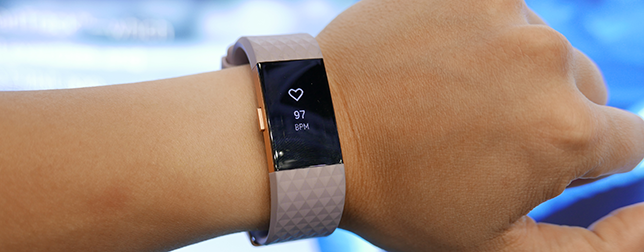Popular fitness tracker Fitbit has the potential to save the lives of thousands of chemotherapy patients by helping doctor predict which patients will do well on a course of therapy, according to a study by the University of Southern California (USC). Some cancer patients fake feeling well to please their doctor, the study said.
“What we’ve learned is that we can get an objective metric of patient performance with the use of these modern technological tools,” said study author Dr. Jorge Nieva from USC. He said the technology could in effect plug patients into the “internet of things”, referring to home devices that have an online connection.
Read more Fitbit’s New Smartwatch App Will Track Female Health
“We’ve all got our home sprinkler systems and our thermostats, all connected to the internet – there’s no reason that our patients shouldn’t also be connected to the internet and have the potential to have monitoring and smart interventions, based on their performance and functioning,” Dr. Nieva said.
Currently, oncologists rely on a decades-old framework of visual observations and questions to determine how well their patients are coping with treatment.
Physicians routinely misjudge the side effects of chemotherapy, leading to toxic buildups and other emergencies that eventually prevent disease fighting.
For their study, the researchers observed 65 patients with solid tumors undergoing troublesome courses of chemotherapy with medications likely to cause severe side effects, like nausea and vomiting. Using a Fitbit or Microsoft fitness band, the team measured patients’ physical activity from 10am to 7pm for 60 days, and then collected their data from smartphone apps.
Among the patients, 41 people ended up wearing the fitness trackers for roughly two-thirds of the study days; their data were captured by the researchers. High-activity patients and low-activity patients took 2,564 steps and 2,261 steps respectively each day.
Only 9 patients got more than 60 hours of non-sedentary activity, but they had “significantly” fewer unexpected hospitalizations. Active patients got up, cooked, or cleaned for more than one hour every three days, and were less likely to have any negative effects, Dr. Nieva said.
Read more Scientists Create Self-healing Health Wearable Powered by Body Heat
“We found that those patients had a much lower risk of unexpected adverse events, hospitalizations, ER visits,” said Dr. Nieva.
A notable proportion of crisis that occur between treatment sessions arise because patients become undernourished and dehydrated as a result of tribulation from toxicity.
As well as helping survival by reducing toxic events, the Fitbit system should better help oncologists predict which patients will not eventually benefit from therapy, Dr. Nieva concluded.
The researcher presented their study at the American Society of Clinical Oncologists conference in Chicago.













